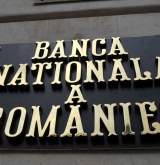“What this study tells us is that, with IMF support, many of the severe disruptions characteristic of past crises have so far been either avoided or sharply reduced. Serious challenges remain, especially restoring sustained growth in output and employment, but there are encouraging signs of stabilization”, said the managing director of IMF, Dominique Strauss-Kahn (photo).
The study notes that the institution has brought funds to control for pre-existing vulnerabilities, such as current account deficits and credit booms.
“It is clear that this new generation of programs incorporate the lessons of the past,” IMF Director of Strategy, Policy, and Review Reza Moghadam said, “While it is certainly too early to draw firm conclusions, this assessment is useful in providing real-time feedback to country authorities, IMF staff, partner institutions and policymakers elsewhere, so that we can continue to learn and improve further.”
Among the factors that have helped avoid past problems were the large and timely financing, stronger country ownership and policy responses tailored to country circumstances.
In March this year, Romania was the recipient of a €20-bln external financing package: €12.9 bln from IMF, €5 bln from European Union, €1 bln from World Bank and €1 bln from other international institutions. IMF has also agreed with nine banks with large exposure in Romania (Erste Bank, Raiffeisen International, Eurobank EFG, National Bank of Greece, UniCredit, Societe Generale, Alpha Bank, Volksbank and Piraeus Bank) to reaffirm their commitments to support their subsidiaries in the country
Citeste si:
Calculator Salariu: Află câți bani primești în mână în funcție de salariul brut »
Te-ar putea interesa și:


















































































![HR [PLAY] Tech Workout - 11...](https://www.wall-street.ro/image_thumbs/thumbs/973/973fe0a3888d417feff63de42e814180-260x260-00-65.jpg?v=1714006252)









